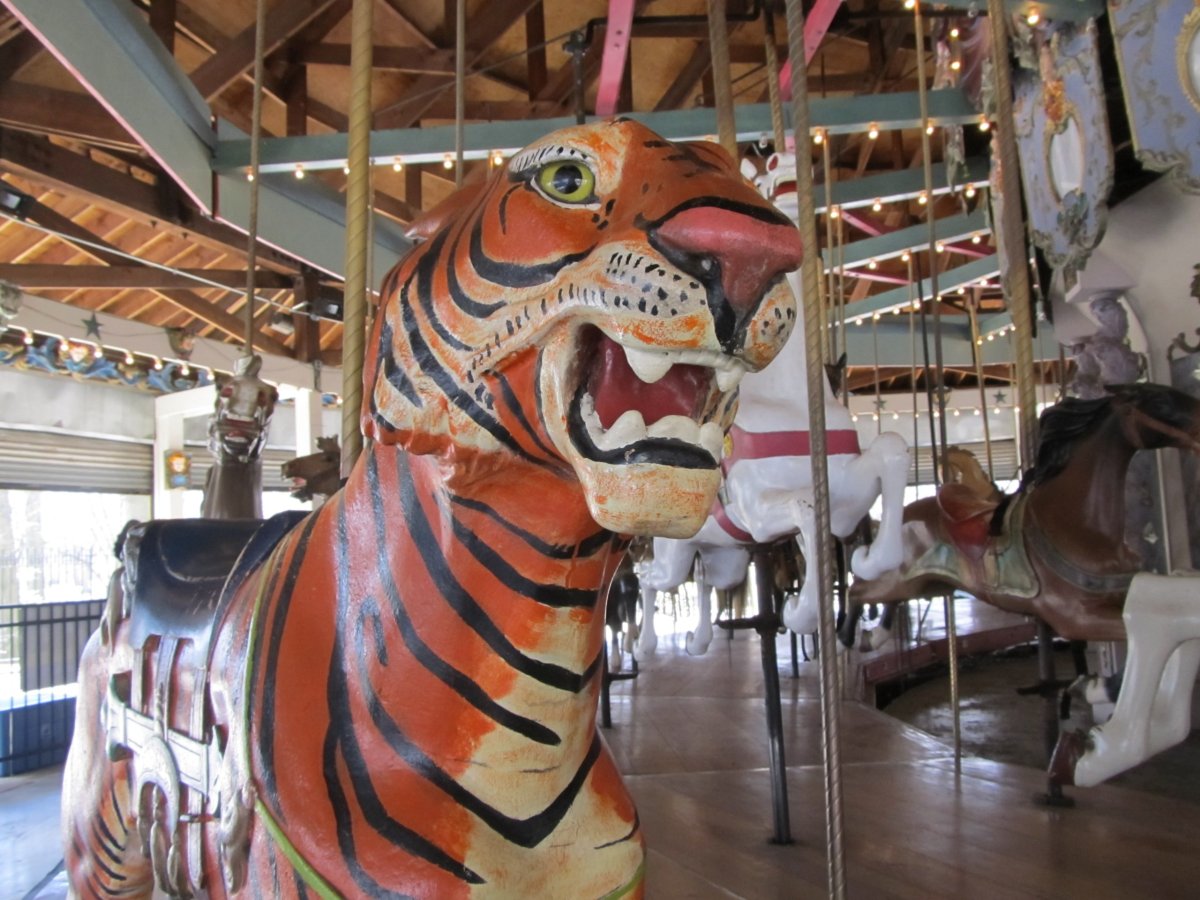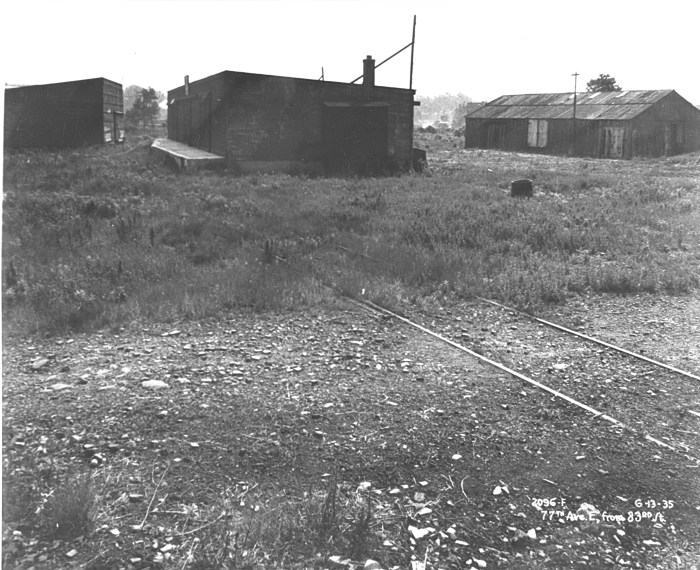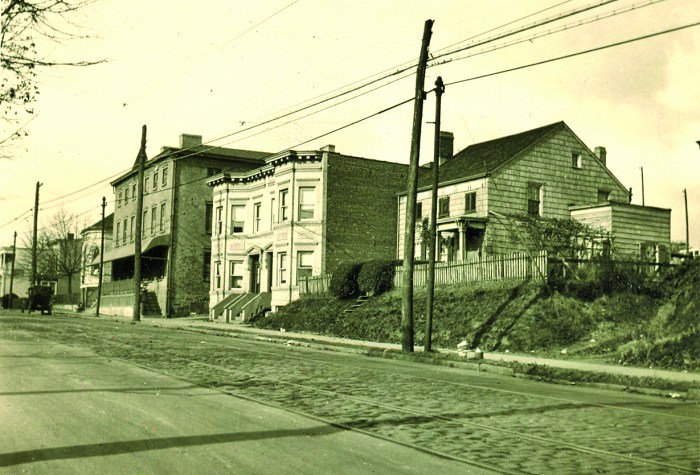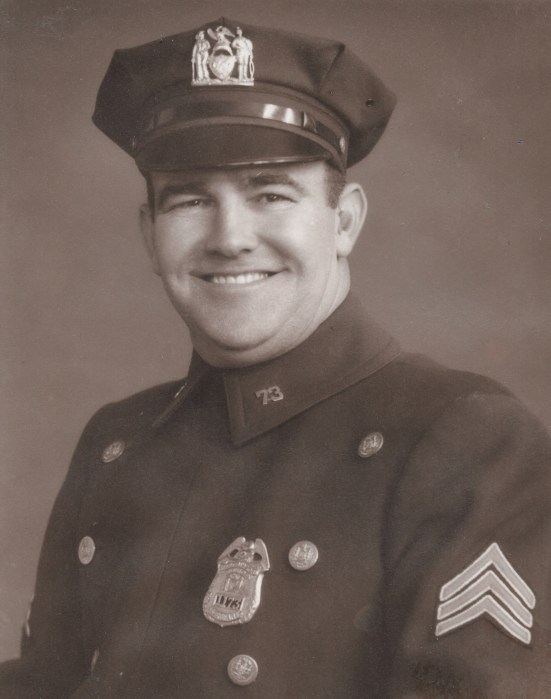For close to a century, the Forest Park Carousel has been part of the rituals of growing up in Woodhaven, Glendale, Richmond Hill and many of the other nearby neighborhoods in Queens and Brooklyn.
In many families, several generations have fond memories of riding on the carousel as children before passing along the tradition by taking their own children or grandchildren for their first ride. The Forest Park Carousel is not only a fun ride, but also a beautiful and historically significant piece of work.
Nearly all the figures were created by the hands of legendary Master Carver Daniel C. Muller, a crucial factor in the New York City Landmarks Preservation Commission’s decision to designate the Forest Park Carousel a New York City Landmark in 2013.
To gain a better understanding of Muller, we need to start with Gustav Dentzel who had learned the craft of carousel-building from his father Michael in Germany and immigrated to Pennsylvania in 1864. Though he initially took up trade as a cabinetmaker, in 1867, he began the G.A. Dentzel Steam and Horsepower Carousel Builder company.
Dentzel’s firm completed an average of four full carousels a year, some of the earliest carousels in the United States.
One of Dentzel’s carvers was also a close friend, John Heinrich Muller. When Mueller died suddenly, Dentzel raised his surviving two teenage sons as his own. The brothers, Daniel and Alfred, joined the Dentzel family business in 1890 and began carving carousel figures.
Although both brothers were talented carvers, it was Daniel C. Muller (born in 1872) who truly shone, honing his craft at the Pennsylvania Academy of Fine Arts. D. C. Muller’s carvings were notable for being very beautiful and realistic. He was also known for militaristic carvings with horses sporting bugles, swords and canteens.
In 1903, the brothers left Dentzel and started their own company, D.C. Muller Brothers Carousel Manufacturing Company, a much smaller shop than Dentzel ran. The Mullers only managed to build 12 carousels over 14 years with much of the delays attributed to Muller’s attention to detail.
The Mullers closed the shop in 1917 and rejoined their former company, which had been run by William Dentzel since his father Gustav’s passing in 1909. They remained with the Dentzels until William passed away and the company folded in 1928 as the Golden Age of Carousels in America came to a close.
And that brings us to the Forest Park Carousel. In the early days of Forest Park, the golf course was much larger, covering all the land down to what is known today as Park Lane South. All the land that the Forest Park Carousel sits on today, plus all the area surrounding it, was originally part of the golf course.
The residents of Woodhaven complained and in 1923 the Parks Department reduced the size of the golf course and the land that was freed up was set aside as public park space. It was at that time that Forest Park began to more closely resemble the park we know today.
Plans for playgrounds, a concrete bandstand, tennis courts and a carousel were announced. It’s hard to imagine, but residents of Woodhaven were opposed to the placement of a carousel so close to Woodhaven Boulevard, which was a sleepy one-lane road called Woodhaven Avenue at the time.
Construction on a building to contain the carousel finished in December 1922, in the woods, well off from Woodhaven Avenue. And by the spring of 1923, a carousel was spinning in Forest Park. The original carousel in Forest Park was a Muller creation and was owned and operated by Fred J. L. Hassinger of Glendale.
For over half a century, residents of Woodhaven and surrounding communities flocked to the Forest Park Carousel. Parents and grandparents put their children on the carousel, then sat and enjoyed the pipe organ music and the smell of hot dogs and popcorn.
Riders on the outside row of figures could try to win prizes by reaching out and grabbing rings that were suspended just out of reach. When children weren’t on the carousel, they had beautiful Forest Park to chase each other around in while their parents chatted with friends in the biergarten.
In next month’s Old Timer, we’ll look at the next chapter in the life of our Forest Park Carousel, a story that contains tragedy as well as the tale of a Muller Carousel rising from the ashes of destruction.



































